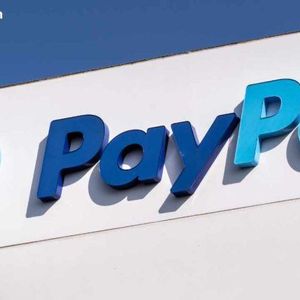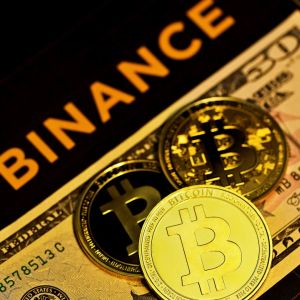Summary Bitcoin is a controversial topic with varying price targets, from $0 to no true upper limit. Bitcoin is a strong store of value due to its salability across time, space, and scale. Valuing Bitcoin is subjective, but its network value is derived from the number of participants and total hash rate. This value has increased enormously over time. I believe Bitcoin has a place in everyone's portfolio, and understanding the underlying technology is critical to investing safely. Cryptocurrency is among the most controversial topics in the financial world. As the progenitor of the crypto asset class, Bitcoin (BTC-USD) has garnered the largest following and the widest range of price targets. There are people who believe Bitcoin is worth $0 and those that believe there is no actual upper limit to Bitcoin's price. Then there are hardcore Bitcoiners that refuse to even price Bitcoin on a USD basis. In this article, I'll discuss my journey from skeptic to believer and explain why I believe Bitcoin belongs in your portfolio. Bitcoin as a Currency The story of Bitcoin sounds more fictional than anything else I've encountered in the financial world. A pseudonymous programmer launched an open-source software that powers a digital currency network during the global financial crisis. The token of that network, which has existed for only 16 years, goes on to appreciate in value more than any other new asset in history. Despite this, there is still widespread debate on whether that token actually has any value, how we ought to value it, and why we should even care about it. Believers say that this is immutable digital gold, which protects us from tyranny and currency devaluation. Doubters say it's the greatest vehicle for financial crime ever created and a valueless Ponzi scheme. Up until this year, I was a doubter. I heard about Bitcoin initially at $6,000 and made some decent money trading in and out of it, but never held it. I never researched the technology nor studied the nature of currencies. When revolutionary, paradigm-changing technologies are released into the world, the natural human reaction is first to doubt. Even the brightest minds in economics have had trouble gauging the impact of new technologies, like Paul Krugman with the internet: Snopes.com To make matters worse for Bitcoin, the whitepaper was only 8 pages. It was written in extremely understandable, simple language. It was concise, straightforward, and direct. This simplicity garnered further doubts; how could something so profound be described in only 8 pages of text? Yet, the whitepaper has stood the test of time thus far and the Bitcoin network has grown more robust. There are a few important concepts to discuss. Currencies are both stores of value, media of exchange, and units of account. Bitcoin is a unit of account as it can easily be used to price something in a transaction. The seller can request 1 bitcoin and the buyer can offer 0.8 bitcoin. In either case, the good being transacted is understood to have some value expressed in bitcoin. Next, what makes a currency better or worse as a store of value? The popular book The Bitcoin Standard presents a straightforward discussion of this. According to the author, Saifedean Ammous, sound money has three key traits: salability across time, space, and scale. Salability across space and scale are straightforward: is it easy to move across space? Gold bars are good at maintaining value, but it isn't feasible to travel with 20 gold bars. Bitcoin has high salability across space - all you need to know is your seed phrase and have an internet connection, and you can access it from anywhere. Salability across scale means we can represent different magnitudes of value using the currency. The US Dollar has a very good scale; we have a hundred dollar bills and pennies. Both are equally acknowledged as the USD currency, but they have much different worth. Bitcoin is divisible down to one millionth of a bitcoin, known as a 'Sat'. Network participants can price things in Sats knowing that those Sats represent the same intrinsic value as one whole bitcoin itself. Salability across time is the most difficult endeavor. This is the Achilles' heel of a fiat currency like the USD; it loses enormous value over time. Continuous minting of new currency devalues the existing base of currency, and the entity that controls the money printer has enormous power over the currency and those that hold it. Bitcoin has very good salability across time. As long as you have an internet connection, and you remember your seed phrase, you can access your bitcoin. The stock-to-flow ratio is very low, meaning the currency isn't devalued by the minting of new currency. The inflow of new bitcoins is very small relative to the base of existing bitcoins. Bitcoin has very good salability across time, space, and scale. It is fundamentally very sound money to store value, as long as you trust in the security of the network. The discussion then turns to money as a means of exchange, which is where Bitcoin is currently lacking relative to USD. Bitcoin has quite limited value as a means of exchange for now, but the underlying technology and infrastructure is being built to facilitate further adoption. In a future article, I'll discuss innovations like the Fold ((FLD)) Card, the Lightning network, and how payments actually work on Bitcoin. For now, though, suffice it to say that Bitcoin is fundamentally an extremely strong store of value that has limited utility as a means of exchange. If Bitcoin has extremely good utility as a store of value - why does it fluctuate in price so much? The price of bitcoin historically has increased over time as more participants joined the network, and I believe this is the best metric to gauge the value of the network, which translates to the value of bitcoin itself. As this initial price appreciation began capturing attention, it gave rise to speculation and trading in Bitcoin. People could buy bitcoin through a centralized exchange without worrying about actually holding or securing their bitcoins, and just try to buy low and sell high. Given bitcoins limited supply, new inflows can increase the price quite drastically. Huge price increases attract more inflows, and the cycle perpetuates. However, these folks hold bitcoin not because they believe in it, but because they are speculating on the price. Therefore, bitcoin is likely the first thing they'll sell in times of fear. This is what happened during COVID; when traditional markets began falling, crypto markets experienced a severe drawdown as institutions and retail traders sold their crypto first before other financial assets. Price volatility is of little impact to the value of the underlying network, so Bitcoiners recognize this volatility as ongoing opportunities to accumulate more bitcoin for cheaper. Blockchain: The Technology Behind Bitcoin Understanding why Bitcoiner's believe in bitcoin requires an understanding of blockchain technology. Bitcoin has a fixed supply of 21 million total bitcoins, of which around 19 million have already been created. Roughly every 10 minutes, new bitcoins are minted through a process called mining. Mining requires network participants to expend computing power and energy to solve a challenging puzzle. Once the puzzle is solved, other network participants check the solution and accept it if it's legitimate. If accepted, they move on to begin looking for the solution to the next block. This is known as proof-of-work. The difficulty of this puzzle is adjusted every two weeks based on the total amount of computing power present in the network, referred to as 'hash rate'. This puzzle is random, so bitcoin miners are essentially repeating a process of 'guess and check' over and over again until they find the correct solution. Accordingly, each unit of hash rate has an equal chance of finding the correct solution. This means that miners who dedicate more computing power to the network are more likely to find the solution and earn bitcoin rewards. Adding computing power to the network requires a fixed cost to buy the hardware and a variable cost of the energy required to run the hardware. As the total hash rate in the network increases, the security of the network increases. Equally important is the widely distributed hash rate; if one miner or a group of colluding miners owned more than 51% of the hash rate, it presents a deep security risk. This risk has decreased in severity over time because the price of bitcoin and existence of bitcoin rewards for solving the puzzle has attracted a diverse set of miners. Hash rate is distributed widely enough such that it's prohibitively expensive to procure enough computing power and pay for the electricity required to attack the network. Further, rejecting a block requires the successful mining of that block and the next block, meaning a miner that wants to change the blockchain needs to complete this randomized puzzle two times faster than the rest of the network combined. The incentive is always to participate in the network honestly and fairly. The more distributed the hash rate, the more security is inherent in the network. Block data includes transactions (in the form of a publicly accessible distributed ledger), the solution to the block puzzle, and a random unique value that is used to solve the puzzle for the next block. Proof-of-work, block mining, and the blockchain could be a full article series in itself, but more description is outside the scope of this article. For now, let's move on to valuing bitcoin. A Difficult Endeavor: Valuing Bitcoin With a solid base of blockchain technology and why it makes bitcoin a good store of value, the discussion then becomes how we value bitcoin. This entire section is a bit of a misnomer, though. I do not believe bitcoin can be effectively valued. For example, how would you go about valuing the US Dollar? You'd tell me that 1 USD = 1 USD. Its value exists in its transactability and network of participants in the USD system. USD is very good in this sense. You can go almost anywhere in the world and spend your USD. This is not true for Bitcoin. However, if I told you I'm saving $1 million USD in a checking account as my life savings, you'd call me crazy. It's not a good store of value. Bitcoin is. If I told you I was holding $1 million worth of Bitcoin at a price of $20,000 per coin, you call me a good investor. A different approach we can take is asking how you would value the internet. Would it be the cumulative market cap of all internet-based companies? Aren't all companies internet based in some sense at this point? It's a very difficult proposition to value the internet, though Metcalfe's Law presents a solid approach. The value of a network is the square of all nodes within the network. A node, within the scope of the internet, would be any computer with an internet connection. Using this, the internet has enormous, almost unthinkably large value. Note that this is not economic value, but network value. To further this point, think of how difficult it would be to create a successful business today without the internet. It would be nearly impossible. In the same vein as the value of USD, 1 bitcoin = 1 bitcoin. It is not yet a very effective medium of exchange, but it's a very good store of value. For now, then, we should discuss a valuation of bitcoin by how good a store of value it is. Similar to the internet, we can use Metcalfe's Law. This determines the underlying security of the network, which is derived from the overall number of network participants. As of the time of writing, there are roughly 19,516 active Bitcoin nodes. By Metcalfe's Law, this would be the value is 19,516 squared, or ~380 million. Keep in mind, this isn't meant to be the value of one individual bitcoin but of the bitcoin network as a whole. Further, it's not meant to be denominated in USD. It is most useful to gauge the value of the network over time. Another angle to view this from, is the total number of active mining rigs, since mining rigs determine network security. As of late 2023, there are roughly 3 million mining rigs. This is found by taking Marathon Digital's ( MARA ) 5% market share with 150,000 rigs. 5% of 3,000,000 is 150,000. Then, 3 million squared is 9 trillion. Again, I'm not suggesting the market cap of bitcoin should be $9 trillion. I'm suggesting that the Bitcoin network is enormously valuable, and the underlying token of that network is similarly increasing in value over time. The value of Bitcoin is entirely subjective and determined by market supply and demand. The inherent value of the bitcoin network is derived from the number of participants in the network over time. If we take a look at the total hash rate, it looks like a Bitcoin price chart: coinwarz.com As long as this chart continues this trend, the value of the bitcoin network will continue increasing and the price of bitcoin is USD will continue increasing as well. It may be a lumpy increase, but the trend will be up and to the right over time. The total hash rate and total number of participants will increase as better and cheaper hardware is made available, so I believe the hash rate will continue increasing over time. Therefore, I believe the price of bitcoin will be materially higher in 10 years than it is today. It is tough to pin an exact value on this besides "higher than today", but this is sufficient for me to store some wealth in Bitcoin. Investor Takeaway Discussing bitcoin and the value of the network is extremely difficult and can get very technical. I left out various extremely important details in this article for the sake of brevity and simplicity, but hope that this provides a general framework for ideating the value of bitcoin, understanding the fundamental security of bitcoin, and making the big decision to allocate some of your wealth to bitcoin. I believe Bitcoin is a Buy at almost any time, even all-time highs, for long-term investors. The network has overcome the difficult years of scaling from 10 to 100 to 100,000 network participants. The road ahead is easier than the road behind us, and I believe bitcoin will continue rising ever higher in value.














